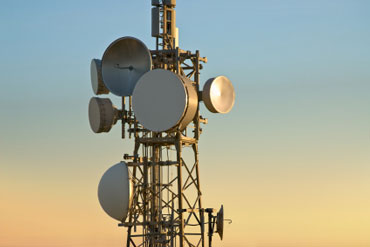May 26, 2015
Continuing the discussion of Signal Boosters let's move to the topic of spectrum.
In broad terms, the radio spectrum is part of the electromagnetic spectrum allocated for radio communication services. Different parts of the radio spectrum are allocated for different technologies and applications and in some cases sold (or licensed) to private operators for specific services (i.e. cellular or television broadcast). In order to reserve certain areas within the radio spectrum the Federal Communications Commission (FCC) regulates availability and ownership through spectrum allocation (aka frequency allocation).
A band is a specific range within the radio spectrum. To prevent interference and increase efficiency similar services are allocated in bands (i.e. broadcasting, mobile radio, cellular, navigation) which are non-overlapping ranges of frequencies. All cellular phone networks operate in the Ultra High Frequency (UHF) range and propagate mostly by line of site.
Emergency calls are increasingly originating from cell phones. For public safety reasons, it's imperative that cell coverage be adequate both inside and outside of buildings. A signal booster site survey is the first step to improving the coverage gap.
Signal boosters (aka cellular repeaters) operate in multiple bands covering multiple carriers (AT&T, Verizon, Sprint, T-Mobile and US Cellular). Installing boosters that include network protections to prevent interference with cell towers is required per the new FCC rules. As a certified Wilson Electronics Custom Installer and RF engineering as our backbone, Direct Network Services will design and install your in-building signal repeater system to maximize signal availability. A three year product warranty is yet another advantage to the Custom Installer product line.
For more information about Signal Boosters contact us at 978-952-6000 or email us at sales@directnetserv.com.
